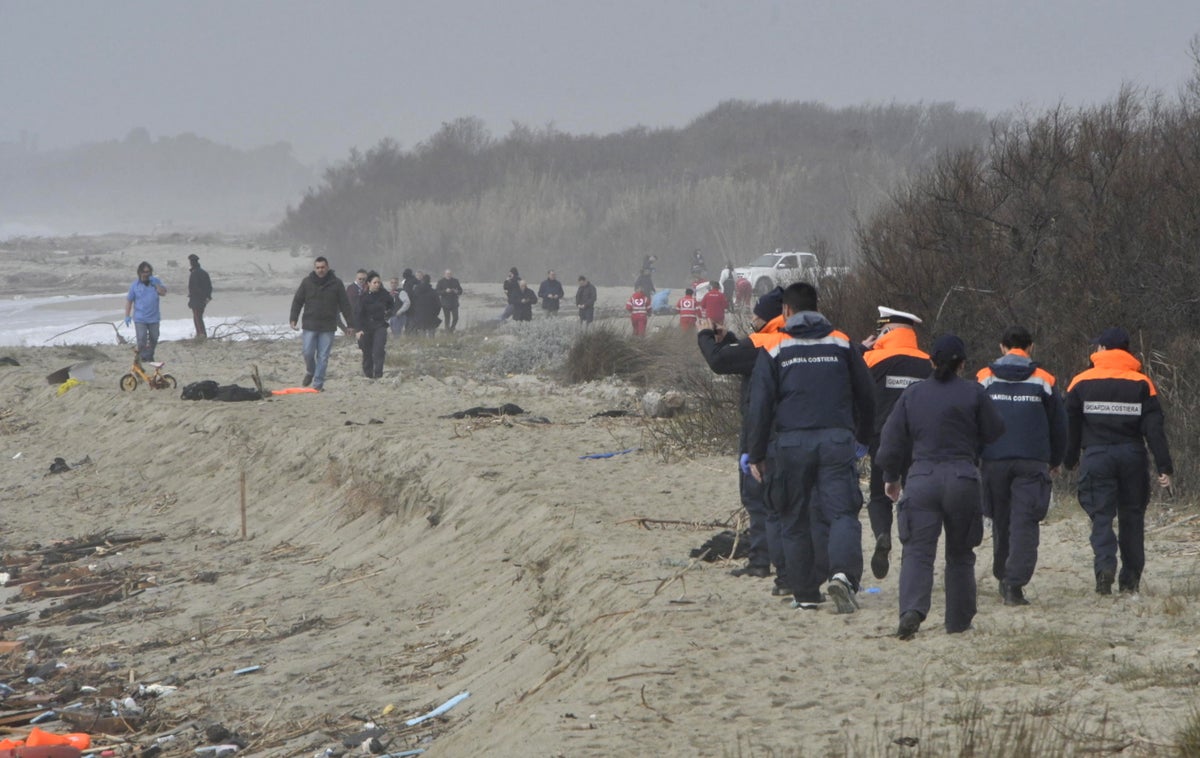
At least 59 people, including a baby, are among the bodies recovered after a boat carrying more than 140 migrants crashed into rocks in rough seas off the southern Italian coast.
The wooden sailing boat had set sail from Turkey several days ago with people from Afghanistan and several other countries on board. It broke apart in stormy weather on Sunday near Steccato di Cutro, a seaside resort in Calabria.
By mid-morning, about 40 survivors had been found, said Luca Cari, a spokesman for firefighters who were involved in rescue efforts.
State TV said some 27 of the survivors made it to shore, apparently on their own.
The Italian news agency AGI said a baby was among the bodies recovered.
The provisional death toll stood at 58, Manuela Curra, a provincial government official, said. Earlier, she said eighty-one people had survived with 20 taken to hospital and one in intensive care.
One survivor has been arrested on trafficking charges, the Guardia di Finanza customs police said.
Italian prime minister Giorgia Meloni said that the migrants were crowded into a 20-metre (66ft) boat in “adverse weather conditions”.
In a statement released by her office, she expressed “her deep sorrow for the many human lives torn away by human traffickers”.
“It’s inhumane to exchange the live of men, women and children for the ‘price’ of a ticket paid by them in the false prospect for a safe voyage,” said Ms Meloni.
She vowed to use her leadership to press for crackdowns on departures arranged by human smugglers and to press fellow European Union leaders to help Italy in her quest.
Ms Meloni’s right-wing government has taken a hard stance on migration since she came to power in October. Her administration has restricted the activities of migrant rescue charities, who Ms Meloni accuses of encouraging migrants to make the dangerous journey, with tough new laws.
Cutro’s mayor, Antonio Ceraso, said women and children were among the dead but the exact number of how many children had died was not yet known.
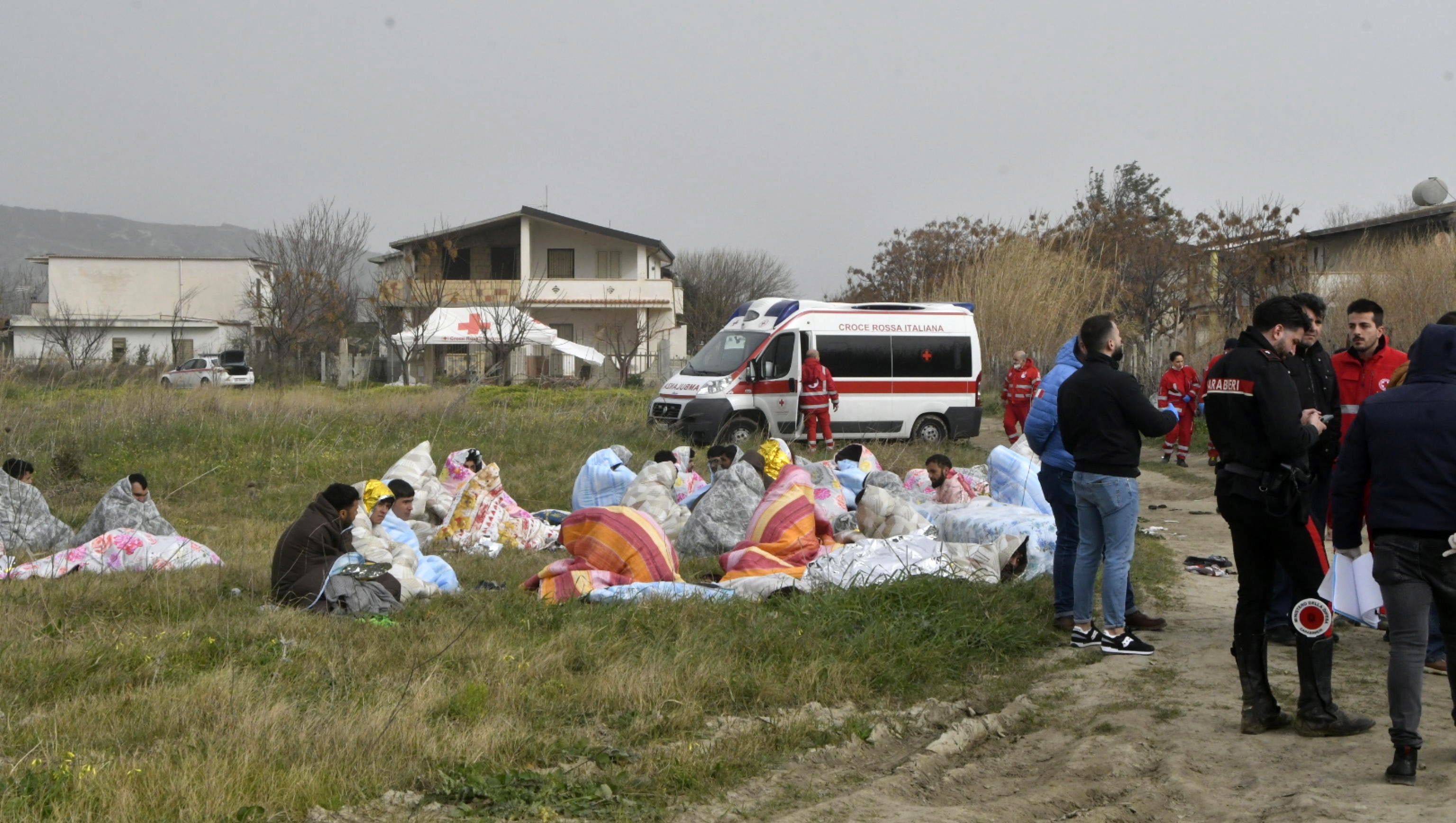
He told the SkyTG24 news channel that he had seen “a spectacle that you would never want to see in your life ... a gruesome sight ... that stays with you for all your life”.
Ms Curra said the ship had left the city Izmir on Turkey’s Aegean coast three or four days ago, with between 140 to 150 aboard. They were mainly from Afghanistan but there were some from Pakistan and Somalia also on board.
In a separate statement, Italian interior minister Matteo Piantedosi said: “It is a huge tragedy which shows the absolute need to act firmly against irregular migration channels.”
He said it was “essential” to stop sea crossings that offer migrants the “illusory mirage of a better life” in Europe, enrich traffickers and “cause tragedies like today’s”.
“It’s an enormous tragedy,” Crotone mayor Vincenzo Voce told state radio station RAI, adding that “in solidarity, the city will find places in the cemetery” for the dead.
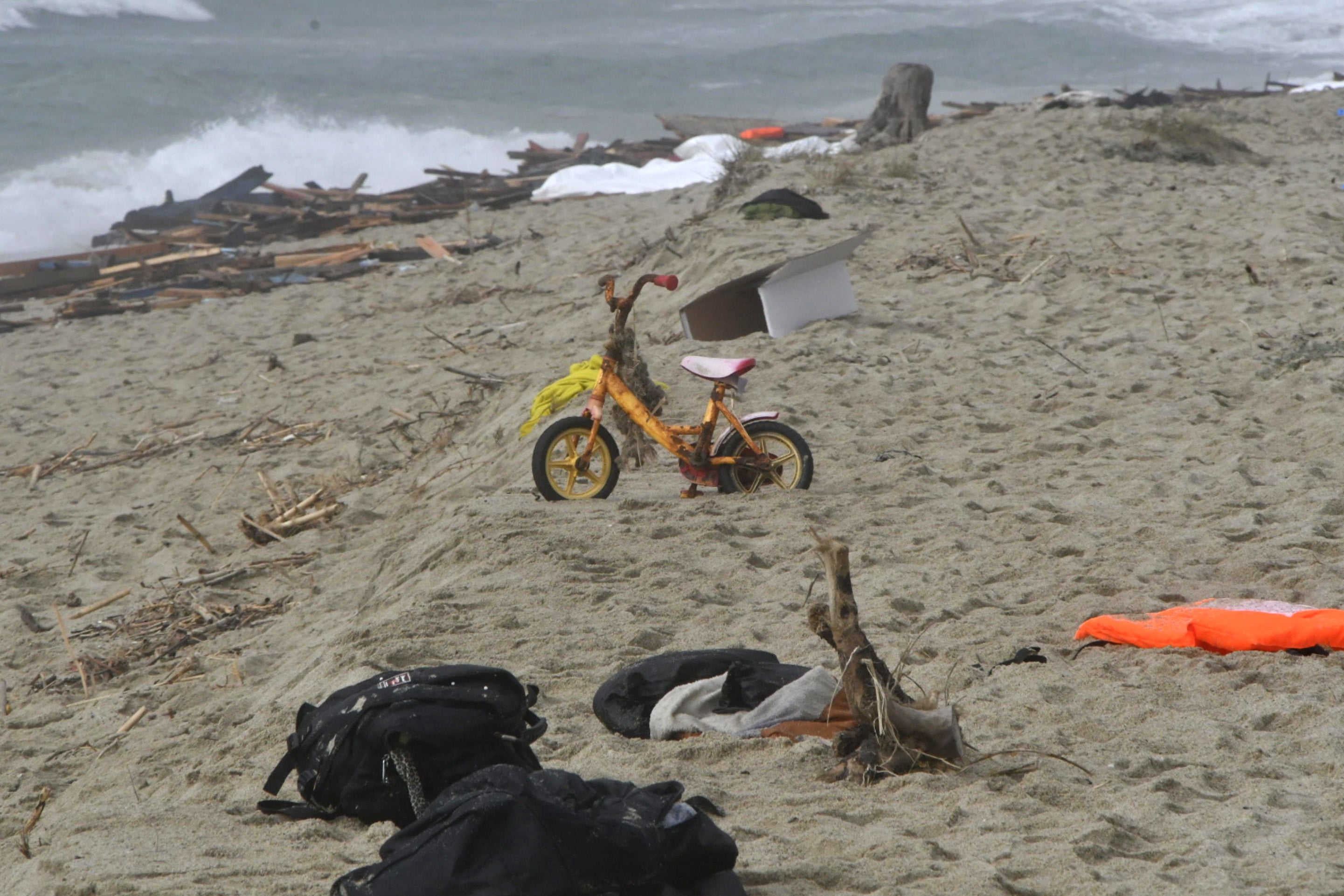
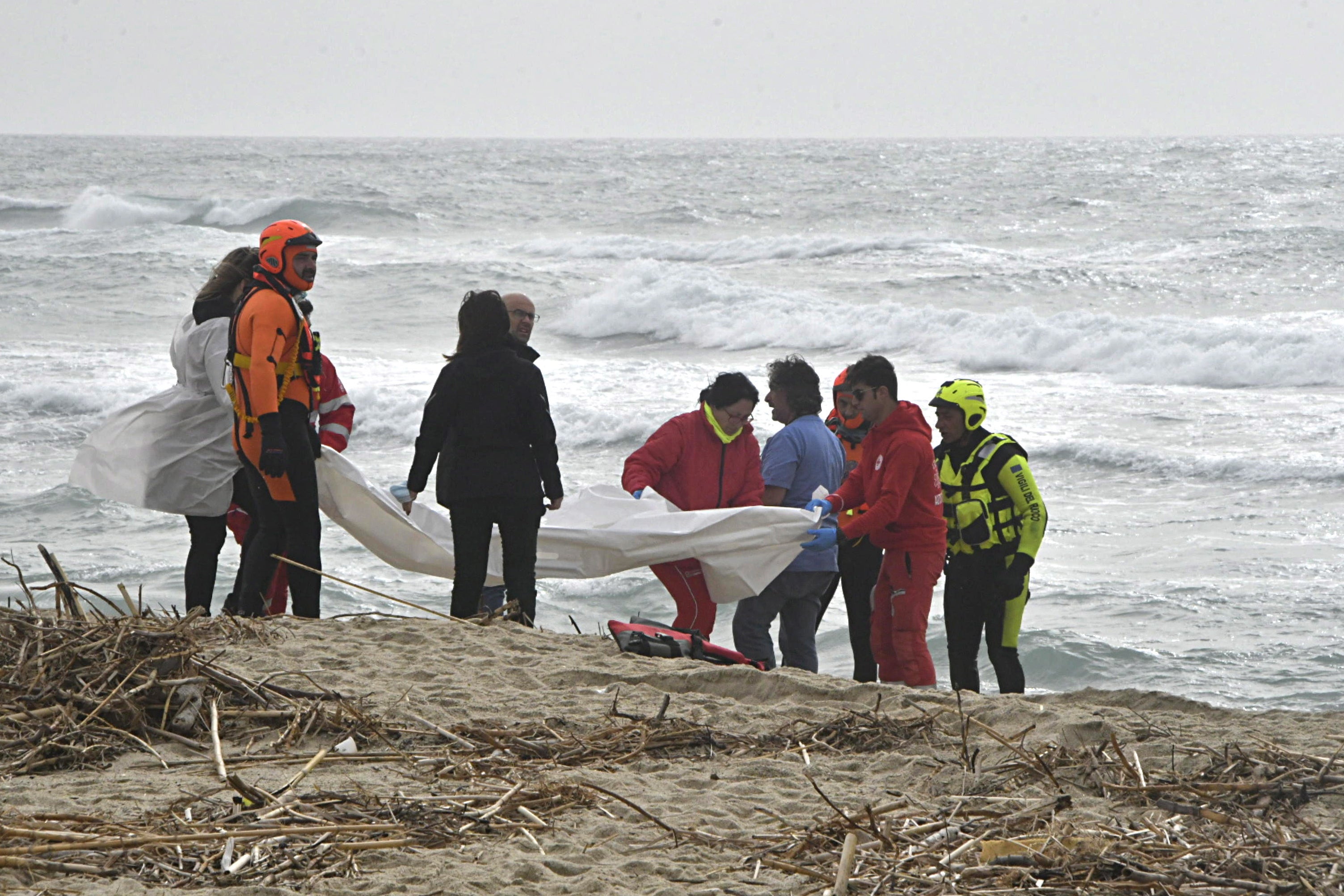
A coastguard source was quoted by RAI as saying vessels from the coastguard, border police and firefighters were involved in rescue efforts.
Danilo Maida, a spokesperson for firefighters in the Calabria region, earlier said that rescue teams were looking for more survivors at sea but harsh conditions were making the search difficult.
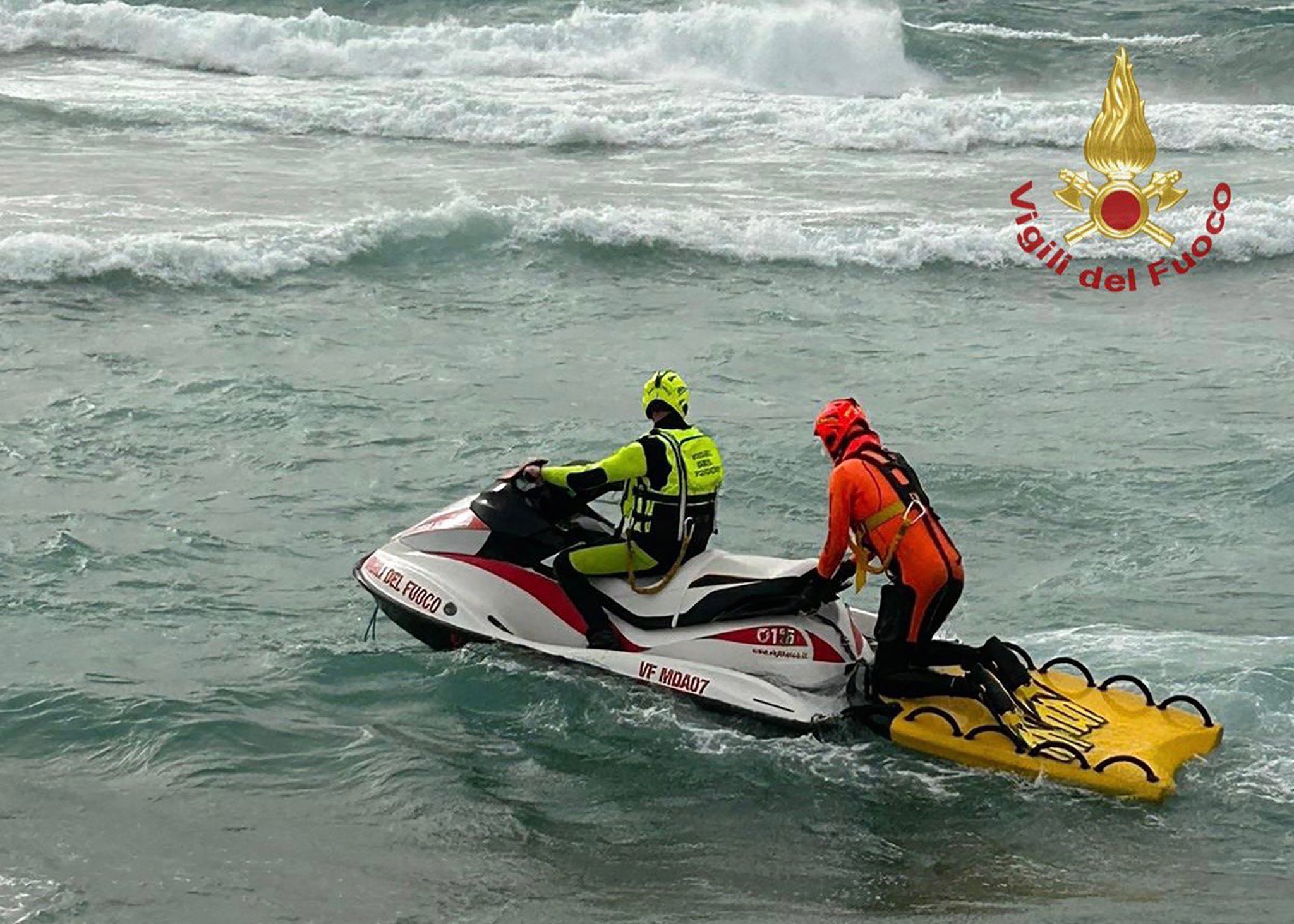
Italy is one of the main landing points for migrants trying to enter Europe by sea before moving on to other nations.
The United Nations Missing Migrants Project has registered more than 17,000 deaths and disappearances in the central Mediterranean route, which is known as one of the world’s most dangerous, since 2014. More than 220 have died or disappeared this year, it estimates.
It was not clear where the boat had set out from, but migrant vessels arriving in Calabria usually depart from Turkish or Egyptian shores.
Another sea route employed by traffickers, considered among the deadliest for migration, crosses the central Mediterranean from Libya’s coast, where migrants often endure brutal detention conditions for months, before they can board rubber dinghies or wooden fishing boats, toward Italian shores.
Most of the migrants departing from Libya are fleeing poverty in sub-Saharan Africa or in Bangladesh and Pakistan.







